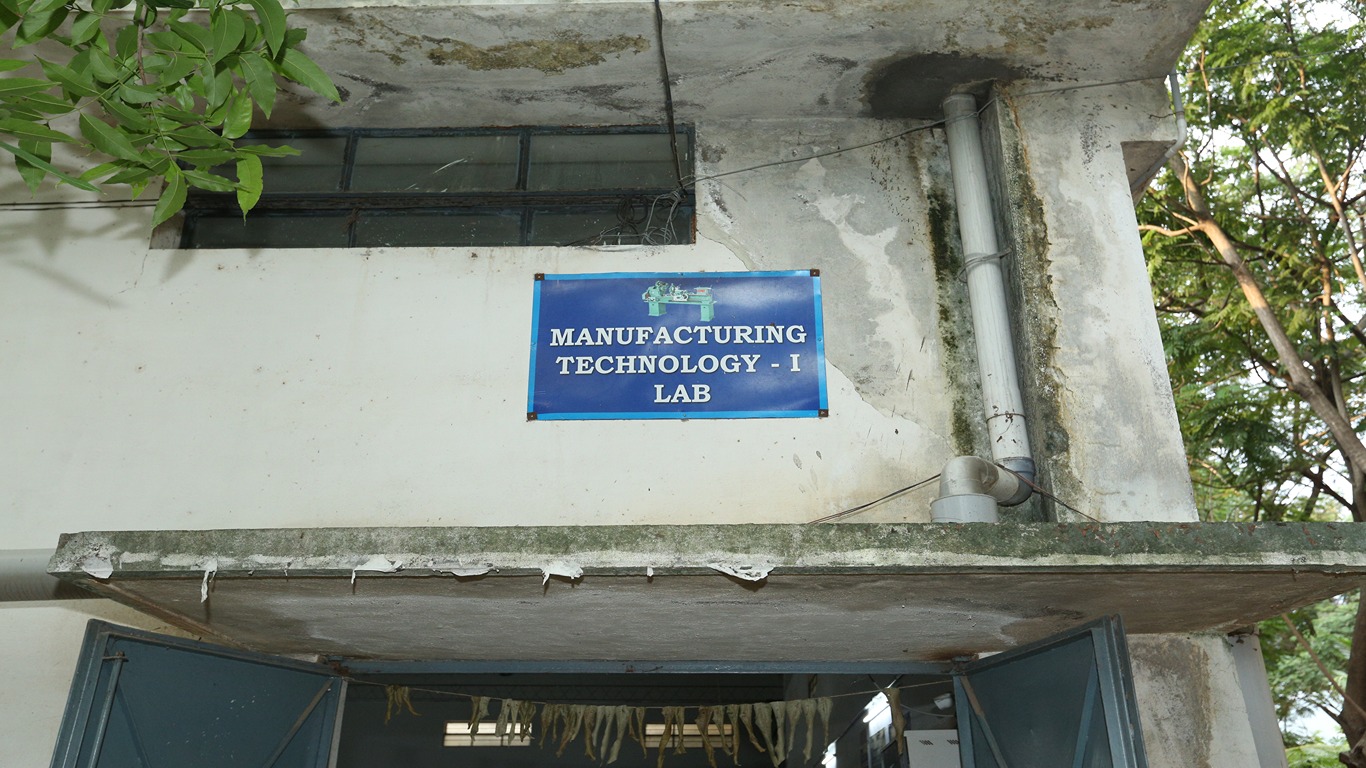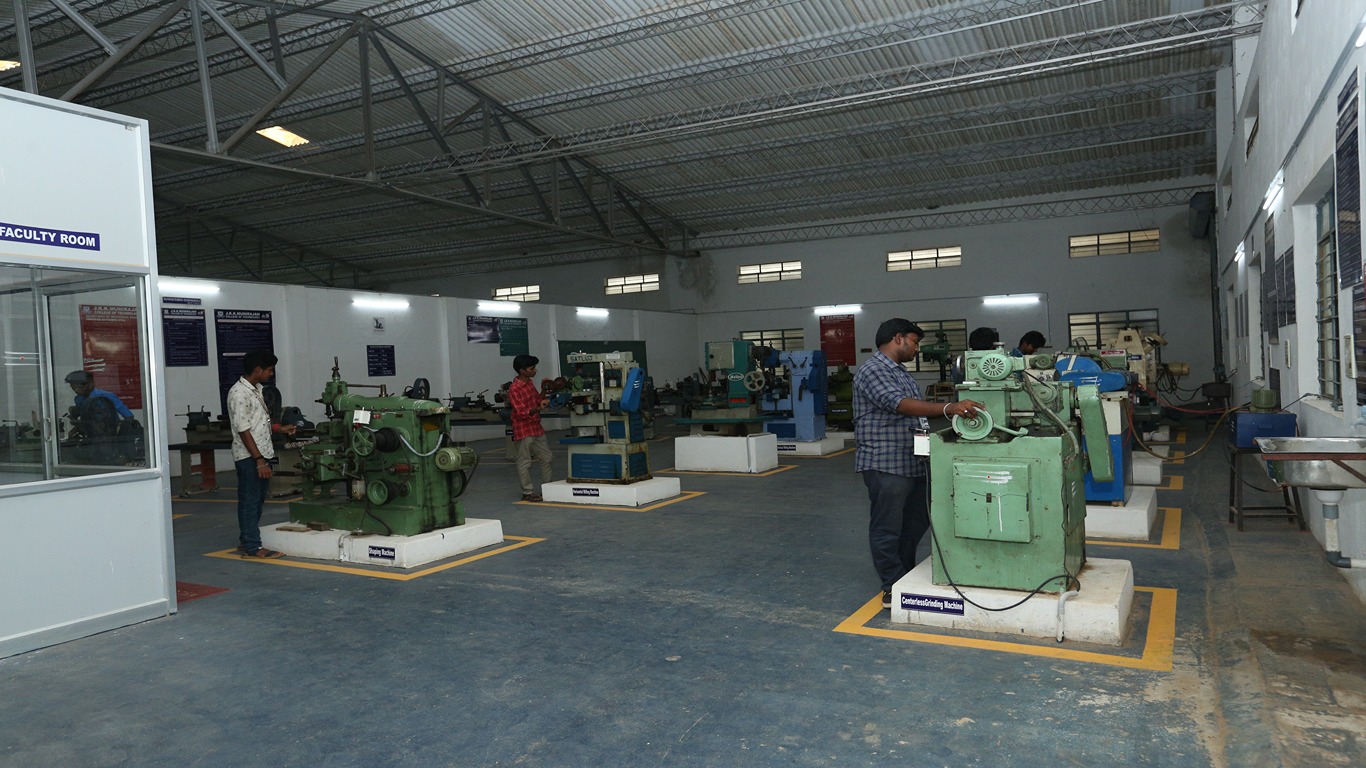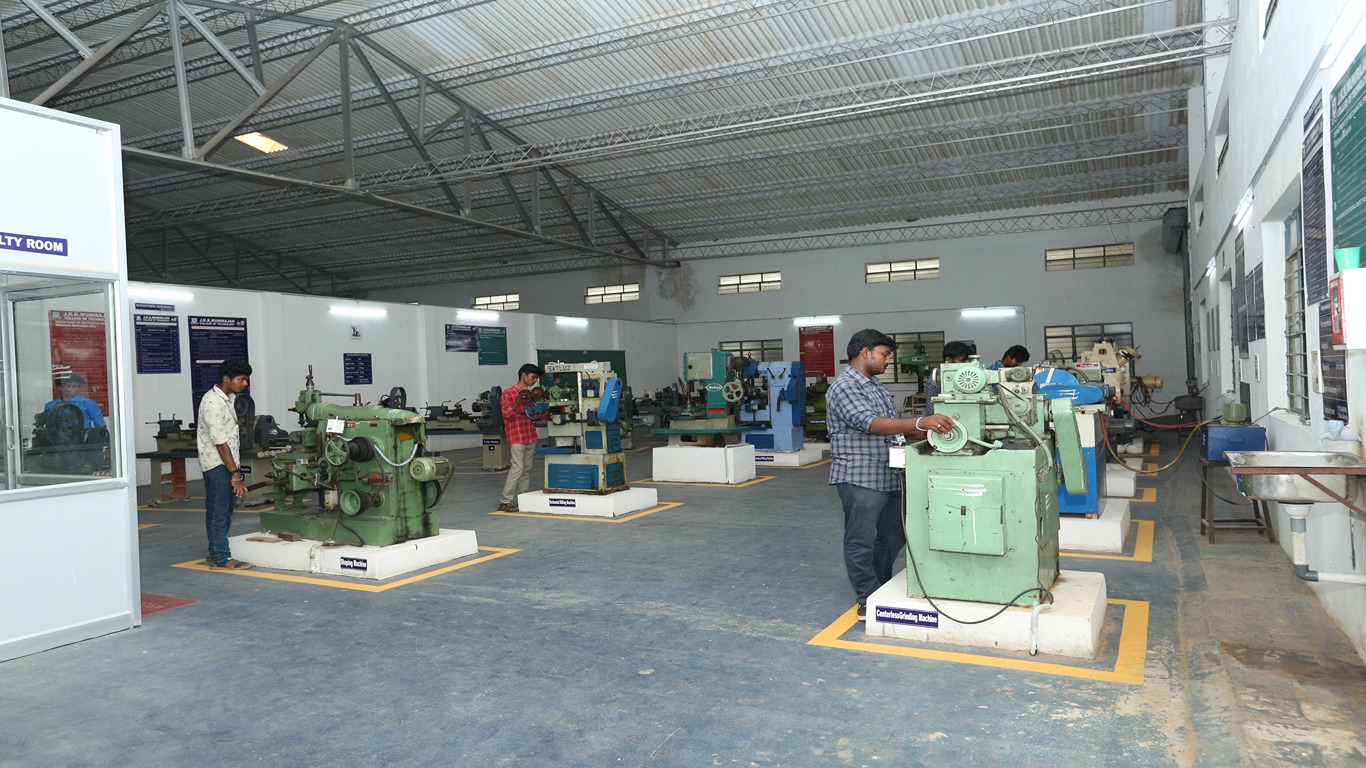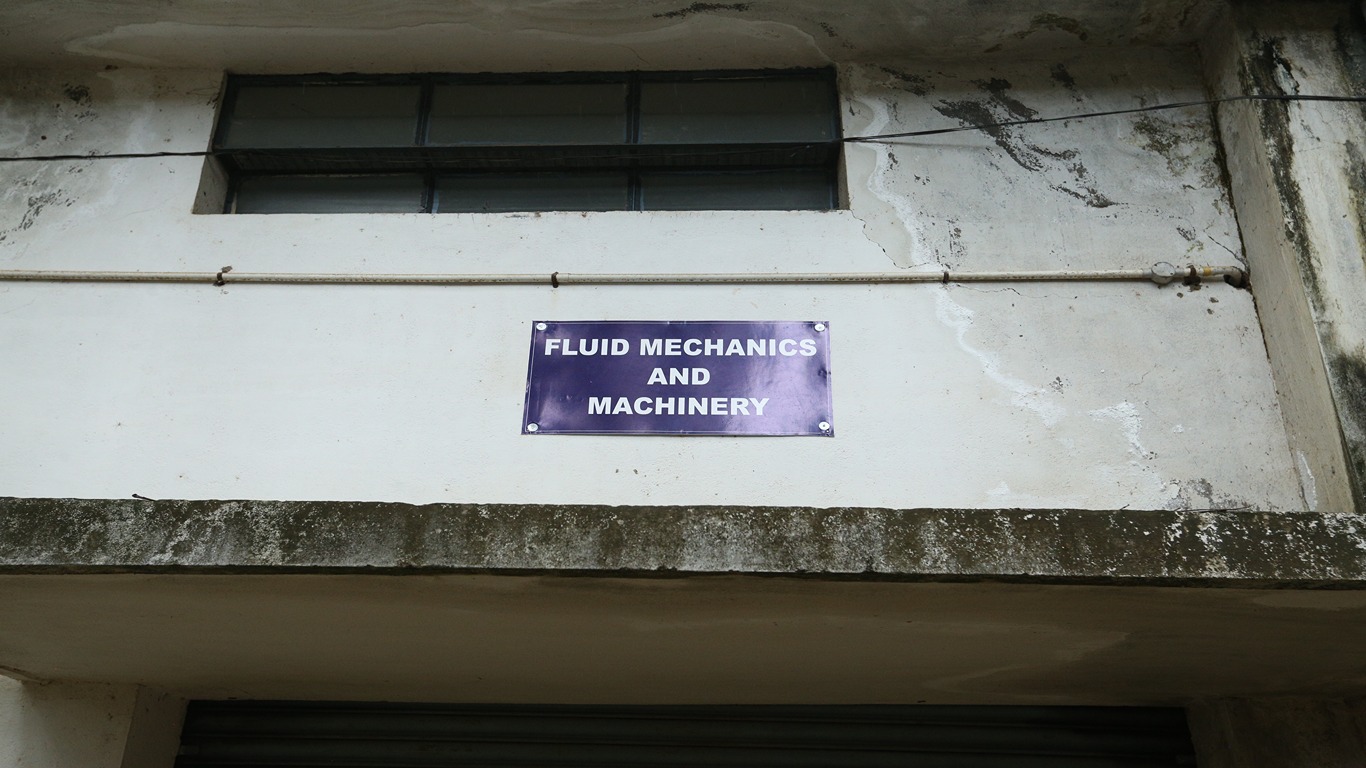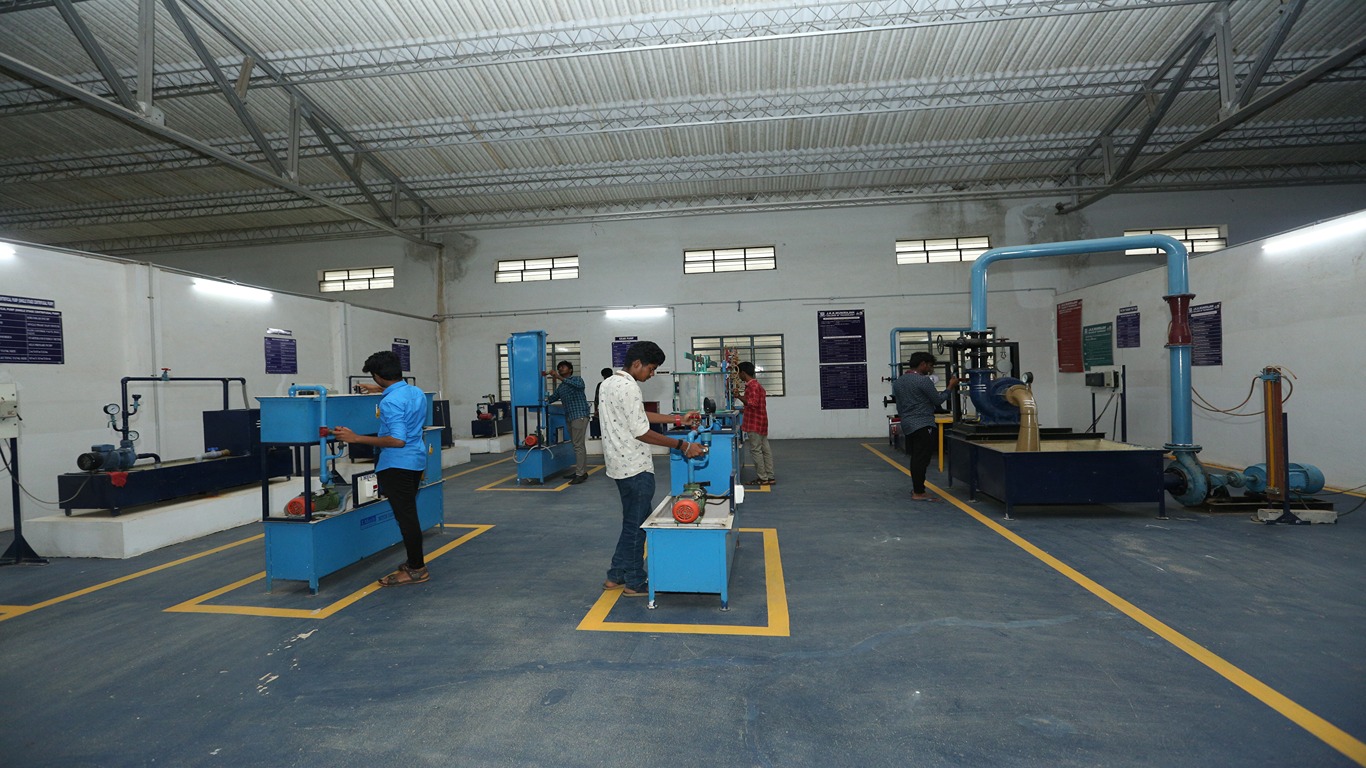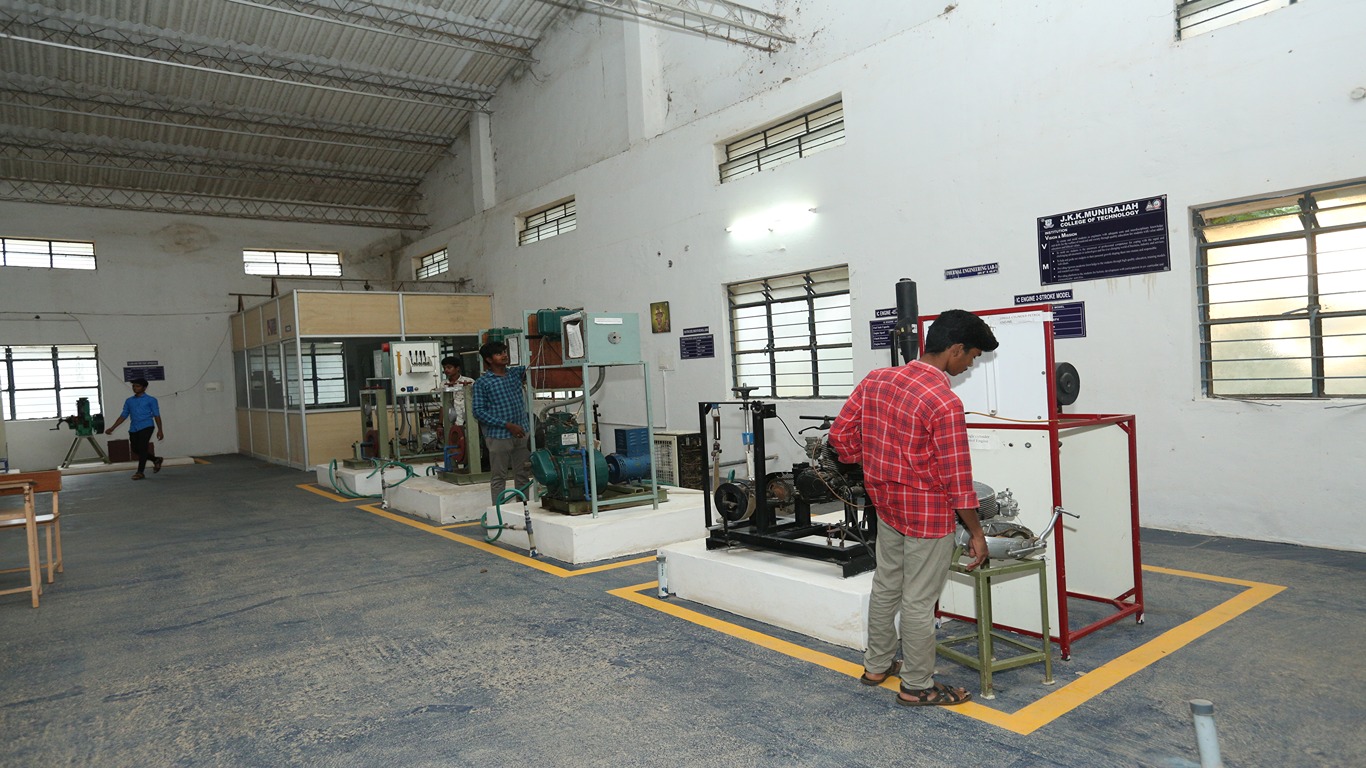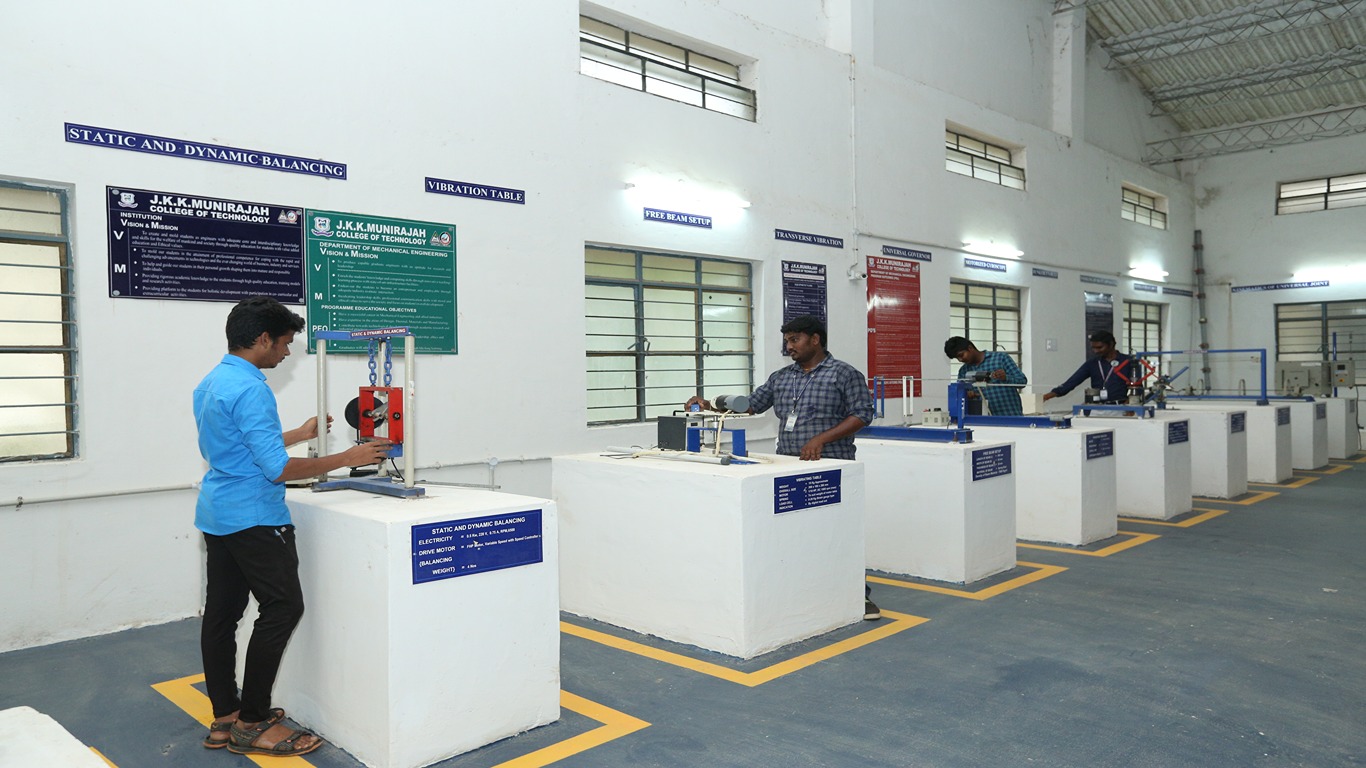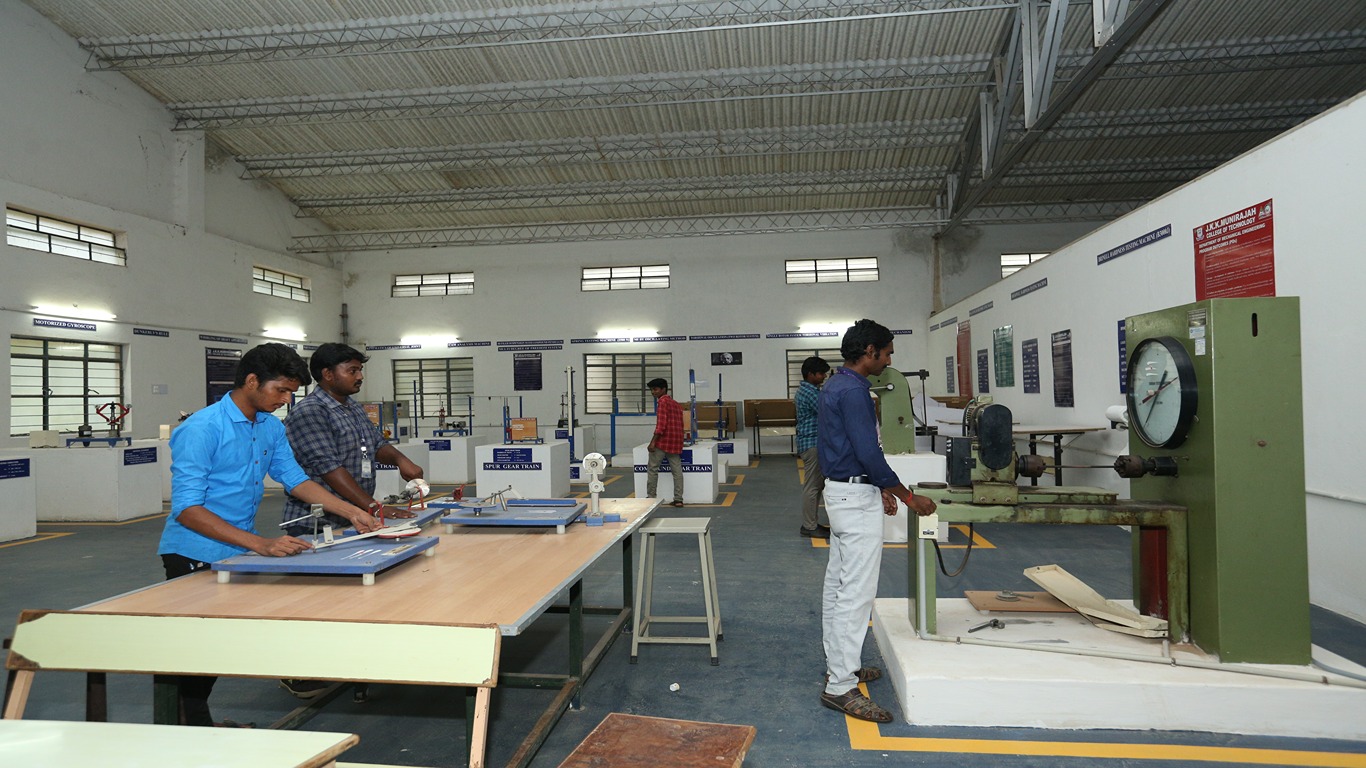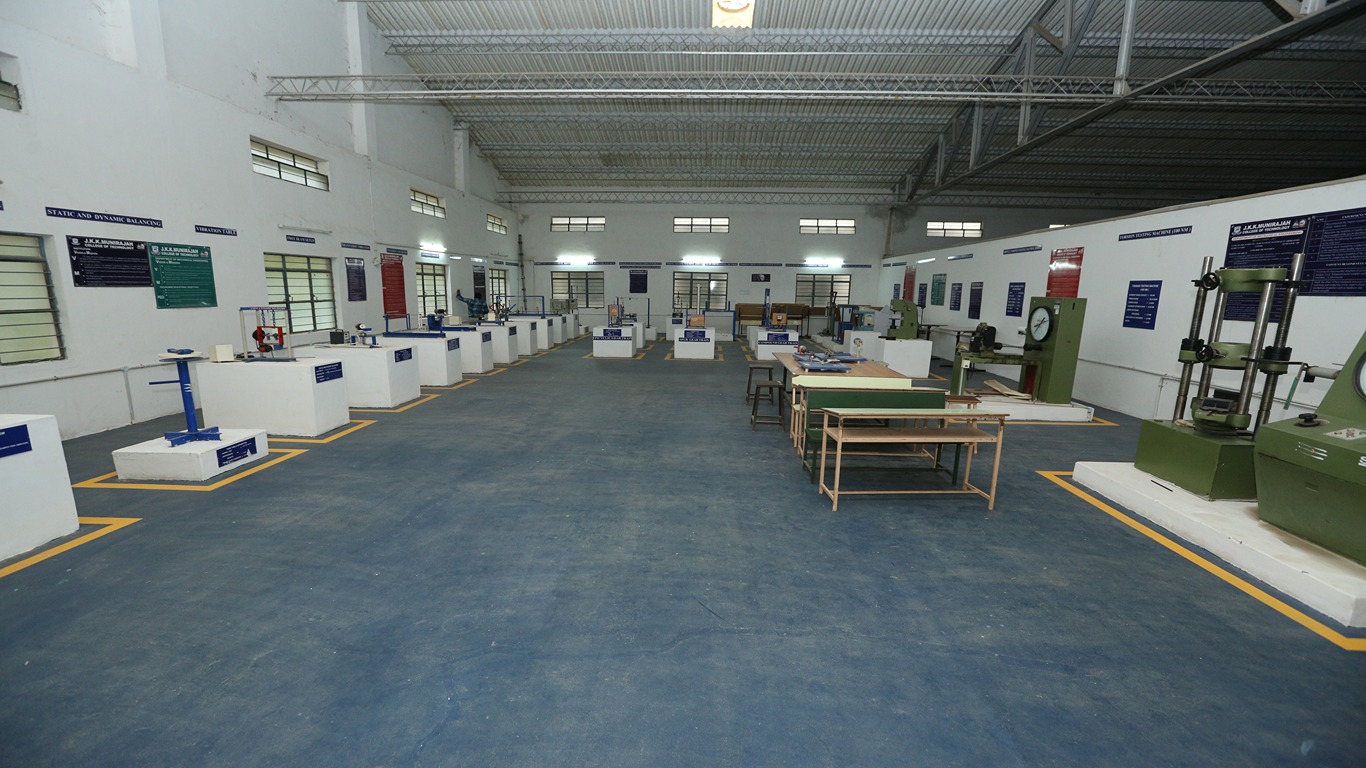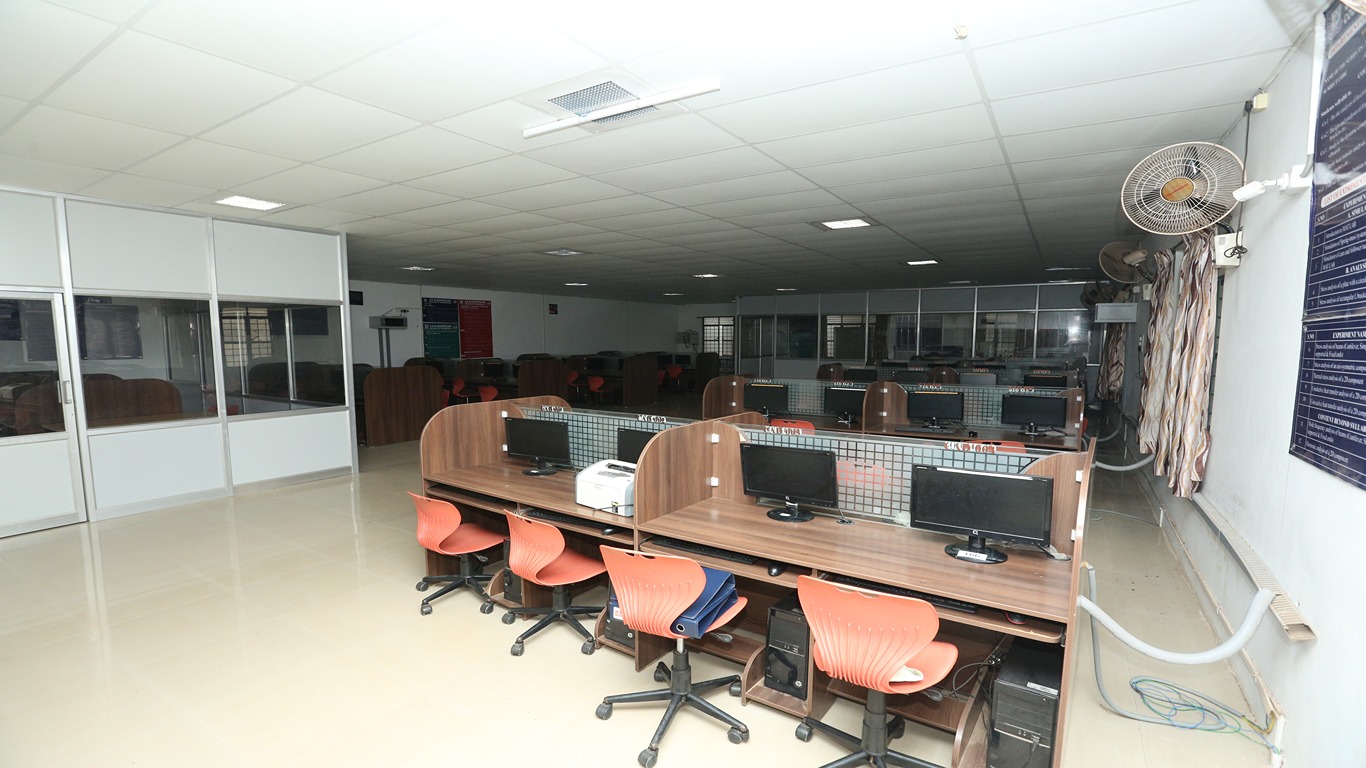Mechanical Engineering
What is Mechanical Engineering?
Mechanical engineers design power-producing machines, such as electric generators, internal combustion engines, and steam and gas turbines, as well as power-using machines, such as refrigeration and air-conditioning systems. Mechanical engineers design other machines inside buildings, such as elevators and escalators.
Why should I study Mechanical Engineering?
Mechanical engineering provides a strong foundation in technical skills such as mathematics, physics, and computer-aided design (CAD). These skills are highly transferable and can be applied to various industries and fields. Mechanical engineers also develop essential soft skills.
Current Year Intake:
B.E- Mechanical Engineering: 30 Seats
M.E- Manufacturing Engineering: 18 Seats
Vision
Seek excellence in the field of Mechanical Engineering education through knowledge and skills to cater to the requirements of the society.
Mission
i. To continuously improving the teaching and learning process to enable students to meet global needs.
ii. To upgrade the knowledge and skills of students, members of faculty and supporting staff through regular training.
iii. To produce the best minds of engineers capable of meeting expectations of Industry, Society and Entrepreneurship development.
PROGRAMME EDUCATIONAL OBJECTIVES (PEOs):
-
Have a successful career in Mechanical Engineering and allied industries.
-
Have expertise in the areas of Design, Thermal, Materials and Manufacturing.
-
Contribute towards technological development through academic research and industrial practices.
-
Practice their profession with good communication, leadership, ethics and social responsibility.
-
Graduates will adapt to evolving technologies through life-long learning.
PROGRAMME SPECIFIC OUTCOMES (PSOs):
-
An ability to identify, analyze and solve engineering problems relating to mechanical systems together with allied engineering streams.
-
Students shall qualify at the State, National and International level competitive examination for employment, higher studies and research.
PROGRAM OUTCOMES (POs):
- Engineering Knowledge: Apply the knowledge of mathematics, science, engineering fundamentals, and an engineering specialization to the solution of complex engineering problems.
- Problem Analysis: Identify, formulate, review research literature, and analyze complex engineering problems reaching substantiated conclusions using first principles of mathematics, natural sciences, and engineering sciences.
- Design / Development of Solutions: Design solutions for complex engineering problems and design system components or processes that meet the specified needs with appropriate consideration for the public health and safety, and the cultural, societal, and environmental considerations.
- Conduct Investigations of Complex Problems: Use research-based knowledge and research methods including design of experiments, analysis and interpretation of data, and synthesis of the information to provide valid conclusions.
- Modern Tool Usage: Create, select, and apply appropriate techniques, resources, and modern engineering and IT tools including prediction and modeling to complex engineering activities with an understanding of the limitations.
- The Engineer and Society: Apply reasoning informed by the contextual knowledge to assess societal, health, safety, legal and cultural issues and the consequent responsibilities relevant to the professional engineering practice.
- Environment and Sustainability: Understand the impact of the professional engineering solutions in societal and environmental contexts, and demonstrate the knowledge of, and need for sustainable development.
- Ethics: Apply ethical principles and commit to professional ethics and responsibilities and norms of the engineering practice.
- Individual and Team Work: Function effectively as an individual, and as a member or leader in diverse teams, and in multidisciplinary settings.
- Communication: Communicate effectively on complex engineering activities with the engineering community and with society at large, such as, being able to comprehend and write effective reports and design documentation, make effective presentations, and give and receive clear instructions.
- Project Management and Finance: Demonstrate knowledge and understanding of the engineering and management principles and apply these to one’s own work, as a member and leader in a team, to manage projects and in multidisciplinary environments.
- Life-Long Learning: Recognize the need for, and have the preparation and ability to engage in independent and lifelong learning in the broadest context of technological change.
| S.No | Faculty Name | Faculty Achievements | Details |
|---|---|---|---|
| 1 | Mr. E. Deeparaj & Mr. K. Karthikayan | Ph.D. Registration | Successfully registered for Ph.D. programs at Anna University. |
| 2 | Dr. N. Sankar | Grant | Secured ₹7,500 under the TNSCST Student Project Scheme (2023-2024). |
| 3 | Dr. N. Sankar & Mr. E. Deeparaj | NPTEL Certification | Completed an NPTEL certification course, showcasing dedication to learning. |
| 4 | College Faculty | Patents Filed | Filed two utility patents in the Indian Patent Office. |
| 5 | Various Faculty Members | FDP Participation | Five faculty members participated in online and offline FDPs. |
| 6 | Mr. P. Eswaran | Academic Excellence | Produced 100% results in the Unconventional Machining Processes subject in Anna University exams. |
| S.No. | Faculty Name | Qualification & Dept. | Designation | Experience |
|---|---|---|---|---|
| 1 | Dr.SANKAR N | M.E., Ph.D.,/MECH | HEAD OF THE DEPARTMENT | 3 Years |
| 2 | Mr.RAMESH K.S | M.E., / MECH | ASSISTANT PROFESSOR | 11 Years |
| 3 | Mr.ESWARAN P | M.E., / MECH | ASSISTANT PROFESSOR | 11 Years |
| 4 | Mr.SIVAKUMAR M | M.E., / MECH | ASSISTANT PROFESSOR | 10 Years |
| 5 | Mr.SRIRAM K | M.E., / MECH | ASSISTANT PROFESSOR | 10 Years |
| 6 | Mr.KARTHIKEYAN S | M.E., / MECH | ASSISTANT PROFESSOR | 10 Years |
| 7 | Mr.DEEPARAJ E | M.E., / MECH | ASSISTANT PROFESSOR | 10 Years |
| 8 | Mrs.DEEPA S | M.E., / MECH | ASSISTANT PROFESSOR | 1 Years |
| 9 | Mr.SATHISHKUMAR S | B.E., / MECH | LAB TECH | 3 Year |

